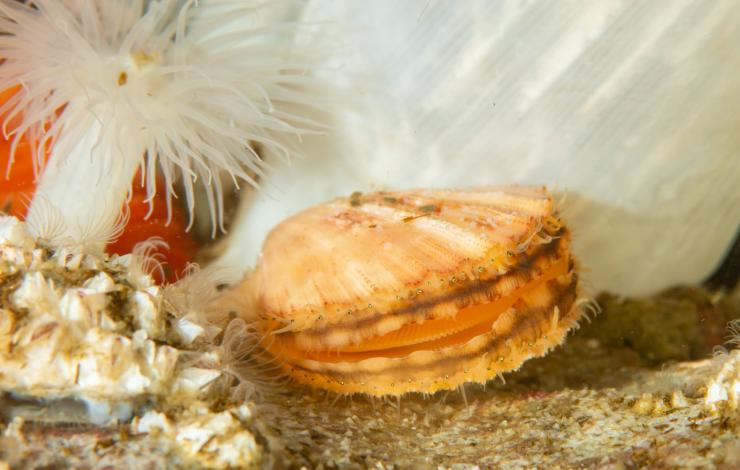PMEL's Ocean Molecular Ecology (OME) program uses 'Omics tools to tackle global ocean issues. We help lead the implementation of the NOAA 'Omics strategy and the National Aquatic eDNA Strategy to advance NOAA's mission of science and stewardship. We seek to leverage advances in molecular biology to scale biological analyses with physical and chemical processes. Our science aims to characterize the impacts of warming, ocean acidification, and hypoxia on marine life. This allows for characterization of marine ecosystems as they respond to a changing climate.
OME work directly supports NOAA's core missions in numerous ways
- Understand and predict Earth systems by characterizing climate impacts on marine biodiversity.
- Develop technology to improve NOAA science, service, and stewardship by advancing 'Omics approaches.
- Transition results so they are useful to society - we do this by creating open access data dissemination, bioinformatic software, and genetic resources.
- Provide stewardship and maintain sustainability of the Nation's living marine resources, their habitats, interactions, and ecosystems by generating critical biodiversity information that is foundational for climate resilient ecosystem based fisheries management.
NOAA 'Omics Website
PMEL Ocean Molecular Ecology Technical Portal
NOAA 'Omics Technical Portal
What's Happening
The 2021 West Coast Ocean Acidification (WCOA) cruise aimed to better understand how changing ocean chemistry affects marine communities along the U.S. West Coast, from Mexico to Canada. As part of this effort, researchers used plankton tows to capture detailed snapshots of phytoplankton and zooplankton species and their diversity. The Ocean Molecular Ecology (OME) group, in partnership with the... more
Feature Publication
We created a guide to provide a framework for generating and disseminating voucher-based DNA reference barcode sequences. It provides a general step-by-step approach to collecting and processing specimens/vouchers, as well as generating and reporting the resulting nucleotide sequence data. We describe protocols for molecular lab work for generating both reference gene sequences (“barcodes”) as well as genome skimming to derive full mitogenomes and nuclear ribosomal repeat regions (“ultra-barcodes”). Our guiding principles include FAIR (Findable, Accessible, Interoperable, Reusable) and CARE (Collective Benefit, Authority to Control, Responsibility, and... more










